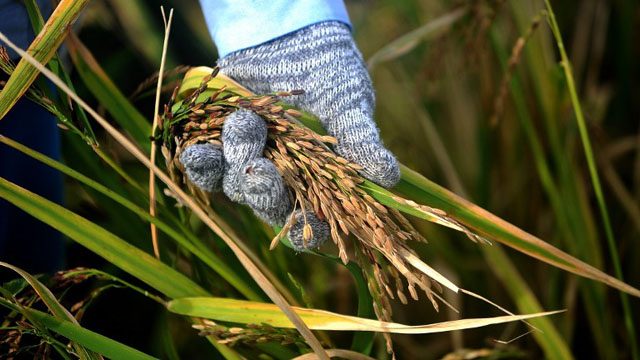SUMMARY
This is AI generated summarization, which may have errors. For context, always refer to the full article.

MANILA, Philippines – The Land Bank of the Philippines (Landbank) has committed to triple lending to small farmers and fishermen to P115 billion by 2022, from the current P37.9 billion.
This is in line with President Rodrigo Duterte’s goal to disperse the growth momentum from Manila to the countryside through the farm sector.
New Landbank President Alex Buenaventura said in a statement on Sunday, December 25, that to accomplish this goal, he will initiate a “re-engineering” of the credit facilities for small stakeholders in the agriculture sector, and encourage them to enter into “corporatives.”
Under his proposal, a corporation would be formed to manage the consolidated farms of small farmers who wish to take part in the corporative. The corporation would be owned 40% by Landbank and 60% by participating commercial banks.
According to new Landbank chief, the farmers would provide the manpower to keep their lands profitable. (READ: 2017 budget priorities: Infrastructure, agriculture, peace and order)
Buenaventura said that under his proposal, 99% of the corporation’s earnings would be distributed to the participating farmers “pro-rata according to their respective land ownership,” while 1% would be declared as dividends of the corporate owners.
Inclusive growth project
He explained that part of the proposal is to enable commercial banks taking part in the corporative to fulfill their part under the Agri-Agra Law of allotting 15% of their total loanable funds for farmers and fishermen, and another 10% for agrarian reform beneficiaries, rather than pay fines for failing to comply with the law’s requirements.
Buenaventura said he is set to discuss this before concerned regulatory bodies. (READ: How can the Philippines have a booming agricultural sector?)
“Also, a portion of the profits earned every harvest by the farmers would be used by them to buy equity in the corporation, until such time that the 60% owned by commercial banks is fully divested to the small farmers,” Buenaventura said.
Landbank said its corporative business model will serve as a common vehicle for the following lead government agencies to promote inclusive growth among their targeted small farmers: Department of Agrarian Reform, Department of Agriculture DA, Office of the Presidential Adviser on the Peace Process (OPAPP), and National Commission on Indigenous People.
Buenaventura said his proposal is still a work in progress and is currently being presented to various experts and stakeholders in the agriculture sector for finetuning.
Work in progress
He added that this corporative approach eventually aims to make small Filipino farmers globally competitive and among the most productive and profitable in Asia.
Buenaventura said that loans to the agriculture sector stood at P37.9 billion as of September 2016, representing only 8.2% of its total loan portfolio of P482 billion.
Given Landbank’s high growth performance as shown by the net increase in its income from P4.1 billion in 2006 to P10.3 billion as of September this year, “it is in a very good position to further expand its services, reach and support especially to its mandated sector, the farmers and fishers,” Buenaventura said.
“We will work on tripling loans to small farmers and fishers to P115 billion by 2022, or in the next 6 years,” he added.
Buenaventura said the possible cash crops that farmers can plant under the corporative are palm oil, rubber, banana, coconut, cacao, and abaca, which have high export potentials.
The scheme will also work for palay farmers who could face new challenges in 2017, with the possible lifting of the quantitative restrictions on rice in 2017.
Buenaventura said the previous contract growing arrangements only allowed big farmers to have access to bank loans, shutting out small stakeholders in the farm sector.
Under the setup, the DAR will identify the lands owned by small farmers that can be formed into corporatives cultivating rice, sugar, and banana.
While the OPAPP will pilot palm oil corporatives in the Autonomous Region in Muslim Mindanao and in conflict-affected areas in Mindanao.
Buenaventura proposed that the labor department will provide additional livelihood opportunities for farmers, while the Department of the Interior and Local Government could assist in convincing local government units to waive the unpaid real property taxes of farmers. – Rappler.com
Add a comment
How does this make you feel?
There are no comments yet. Add your comment to start the conversation.